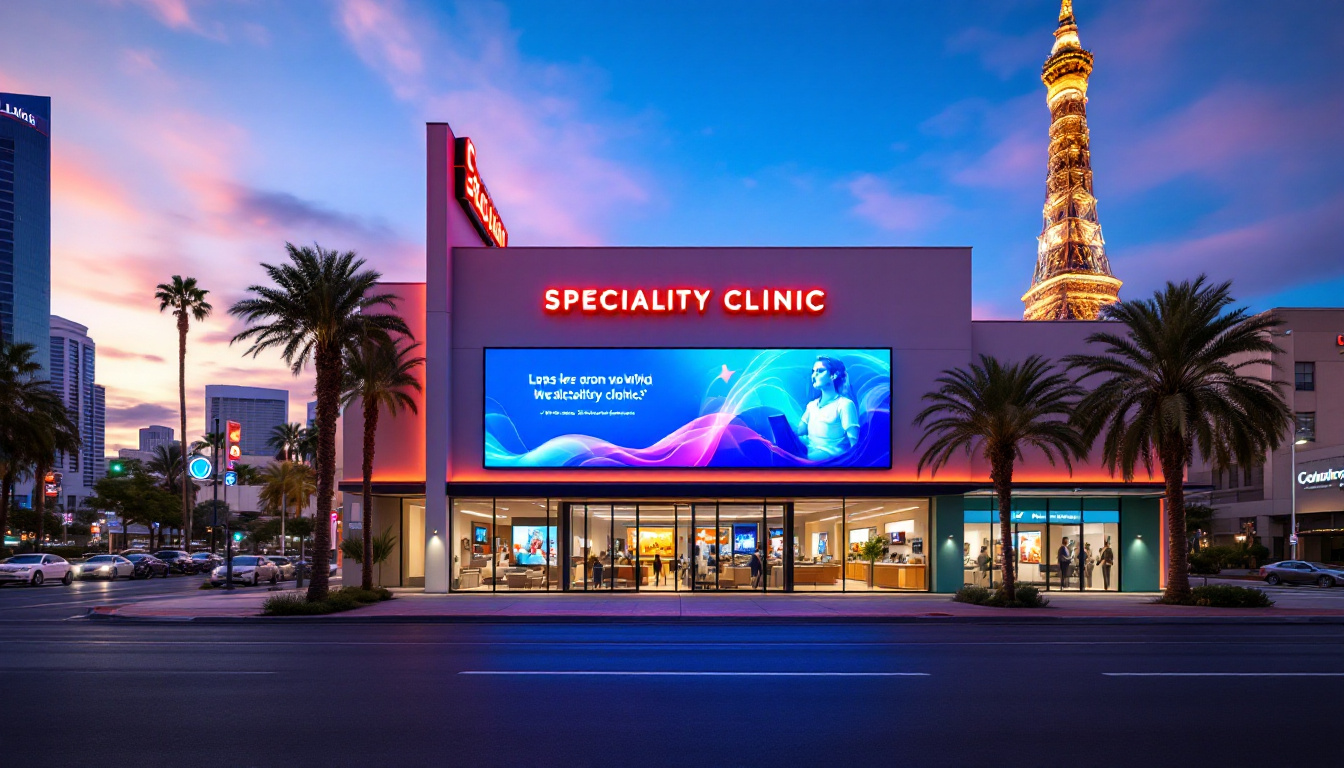10 Things Every Las Vegas, NV Business Should Know About PPC

Pay-Per-Click (PPC) advertising is a powerful tool for businesses in Las Vegas, NV, seeking immediate visibility and traffic. With the unique landscape and competitive nature of the Las Vegas market, understanding PPC can provide a significant edge. In this article, we will explore ten crucial things every Las Vegas business should know about PPC advertising.
Why PPC is essential for Las Vegas, NV businesses
Las Vegas is one of the most dynamic and competitive cities in the world, especially for businesses in the tourism and entertainment sectors. PPC advertising is essential for these businesses because it offers immediate access to a targeted audience.
Unlike traditional advertising methods, PPC allows businesses to reach customers actively searching for specific services or products. This targeting capability ensures that marketing budgets are spent efficiently, as ads are shown only when there's a high likelihood of conversion.
Additionally, with the city hosting millions of tourists yearly, PPC can help capture the interest of visitors who are often looking for entertainment options, dining experiences, and accommodation. This means higher traffic and, potentially, higher revenues for businesses that effectively utilize PPC strategies.
Moreover, the unique nature of Las Vegas as a destination means that businesses can leverage seasonal trends and major events to optimize their PPC campaigns. For instance, during major conventions or festivals, targeted ads can be tailored to attract attendees who are specifically searching for related services, such as hotels, restaurants, or entertainment venues. By adjusting bids and ad copy to reflect these timely opportunities, businesses can maximize their visibility and capitalize on the influx of visitors during peak times.
Furthermore, the competitive landscape of Las Vegas necessitates that businesses not only adopt PPC but also continuously refine their strategies. With numerous competitors vying for the same audience, utilizing advanced analytics and A/B testing can help businesses identify which ads resonate most with potential customers. This data-driven approach allows for real-time adjustments, ensuring that advertising efforts remain relevant and effective, ultimately leading to a better return on investment.
Common misconceptions about PPC
Many businesses shy away from PPC advertising due to misconceptions that can lead to missed opportunities. One prevalent myth is that PPC is too expensive for small businesses. However, PPC can be tailored to fit any budget, making it possible for businesses of all sizes to participate. In fact, with careful keyword selection and ad targeting, small businesses can achieve a significant return on investment, often outpacing traditional advertising methods. By starting with a modest budget and gradually scaling up as they see results, small businesses can effectively compete with larger companies in their industry.

Another misconception is that PPC provides instant success. While it's true that ads can go live and generate traffic quickly, the campaign's overall success relies on continual optimization and adjustment based on performance metrics. This means that businesses must be prepared to analyze data regularly, tweaking ad copy, adjusting bids, and refining targeting parameters. The learning curve can be steep, but the insights gained from this process can lead to more effective campaigns over time, ultimately resulting in higher conversion rates and lower costs per acquisition.
Lastly, there is a belief that PPC neglects long-term benefits. While it is indeed a short-term marketing strategy, it can also support long-term goals by increasing brand recognition and attracting repeat customers when properly managed. For instance, consistent visibility through PPC ads can help establish a brand's presence in the market, making it more likely that potential customers will remember the brand when they are ready to make a purchase. Moreover, by leveraging remarketing strategies, businesses can re-engage users who have previously interacted with their site, nurturing these leads and guiding them further down the sales funnel.
Additionally, many businesses underestimate the power of data that PPC campaigns generate. Each click and interaction provides valuable insights into customer behavior and preferences. By analyzing this data, businesses can refine their overall marketing strategies, not just their PPC efforts. For example, understanding which keywords drive the most traffic can inform content creation, SEO strategies, and even product development. This holistic approach to marketing can lead to a more cohesive brand strategy that resonates with customers across multiple channels.
How to allocate your PPC budget effectively
Allocating a PPC budget effectively is crucial for maximizing return on investment (ROI). Here are some strategies to consider:
- Set clear objectives: Establish what you want to achieve with your campaign, whether it’s brand awareness, lead generation, or sales. This will direct how you spend your budget.
- Analyze historical data: Review past campaigns to identify what worked and what didn’t. This data will help inform future budget decisions.
- Consider seasonality: In Las Vegas, certain times of the year may yield higher traffic. Allocate more budget during peak seasons when visitors flock to the city.
- Test and measure: Begin with a small budget for testing different ad types and strategies. Use A/B testing to evaluate what performs best and reallocate funds accordingly.
- Adjust based on performance: Use real-time data to adapt your budget. If certain keywords or ads are performing well, consider increasing their allocated budget.
In addition to these strategies, it's essential to keep an eye on your competitors. Understanding their PPC strategies can provide valuable insights into market trends and help you identify gaps in your own approach. Tools like SEMrush or SpyFu can help you analyze competitor keywords and ad copy, allowing you to refine your own campaigns to stand out in a crowded marketplace. This competitive analysis not only aids in budget allocation but also enhances your overall strategy by ensuring that you remain agile and responsive to shifts in the industry.
Moreover, consider the importance of audience segmentation. By breaking down your target audience into specific groups based on demographics, interests, or behaviors, you can tailor your ads more effectively. This targeted approach often leads to higher engagement rates and conversions, ultimately making your budget work harder for you. For instance, if you notice that a particular demographic responds well to a specific ad format, you can allocate more resources to that segment, ensuring that your budget is spent on the most promising opportunities.
The role of keywords in PPC success
Keywords are the backbone of any PPC campaign. Selecting the right keywords is essential for attracting the intended audience. Conducting thorough keyword research will help identify the terms potential customers are using when searching for your services.
Utilize tools like Google Keyword Planner to discover high-volume and relevant keywords. Long-tail keywords often bring in more targeted traffic and, as a result, tend to have lower competition and lower costs.
Additionally, regularly updating and refining your keyword list is vital. This ensures your ads remain relevant and aligned with current trends and audience search behaviors.
Moreover, understanding the intent behind keywords can significantly enhance your PPC strategy. Keywords can be categorized into different types based on user intent: informational, navigational, and transactional. By identifying which category your target keywords fall into, you can tailor your ad copy and landing pages to better meet the needs of your audience. For instance, transactional keywords like "buy running shoes online" indicate a readiness to purchase, while informational keywords such as "best running shoes for beginners" suggest that the user is still in the research phase.
Incorporating negative keywords into your strategy is another critical aspect of keyword management. Negative keywords prevent your ads from showing up for irrelevant searches, which can save you money and improve your click-through rate (CTR). For example, if you sell premium running shoes, adding "cheap" as a negative keyword can help you avoid clicks from users who are not interested in your high-end products. This strategic approach not only optimizes your budget but also ensures that your ads reach a more qualified audience, ultimately leading to higher conversion rates.
How PPC fits into your overall marketing strategy
PPC should not be viewed in isolation; instead, it must complement other marketing efforts. Integrating PPC with social media, search engine optimization (SEO), and content marketing can create a cohesive strategy that amplifies brand messaging.

For instance, using PPC to promote a blog post or a special event can increase traffic to your website while social media can enhance engagement and reach.
Moreover, insights gained from PPC campaigns can inform other areas of your marketing strategy. Analyzing which keywords convert can help refine your SEO efforts, creating a feedback loop that advances your overall goals.
Additionally, leveraging remarketing strategies within your PPC campaigns can help recapture the attention of users who have previously interacted with your brand. By displaying targeted ads to these users across various platforms, you can keep your brand top-of-mind and encourage them to revisit your site, ultimately increasing conversion rates. This approach not only maximizes the effectiveness of your PPC budget but also enhances the customer journey by providing relevant touchpoints that guide potential customers through the sales funnel.
Furthermore, the synergy between PPC and email marketing can be particularly powerful. By using PPC to drive traffic to landing pages that offer valuable resources or exclusive promotions, you can build your email list. Once users subscribe, you can nurture these leads through targeted email campaigns that reinforce the messaging from your PPC ads. This multi-channel approach not only boosts brand awareness but also fosters a deeper connection with your audience, paving the way for long-term loyalty and engagement.
Conclusion
In conclusion, understanding PPC is crucial for businesses in Las Vegas, NV, looking to thrive in a competitive landscape. From recognizing its importance and debunking common myths to effective budget allocation and keyword research, these elements are vital for a successful PPC strategy.
By integrating PPC into an overall marketing strategy, businesses can enhance their brand presence, attract the right customers, and ultimately increase sales.
As the digital advertising landscape continues to evolve, staying informed and adaptable will ensure that Las Vegas businesses leverage PPC effectively for their growth and success.

As a Google Ads expert, I bring proven expertise in optimizing advertising campaigns to maximize ROI.
I specialize in sharing advanced strategies and targeted tips to refine Google Ads campaign management.
Committed to staying ahead of the latest trends and algorithms, I ensure that my clients receive cutting-edge solutions.
My passion for digital marketing and my ability to interpret data for strategic insights enable me to offer high-level consulting that aims to exceed expectations.





























